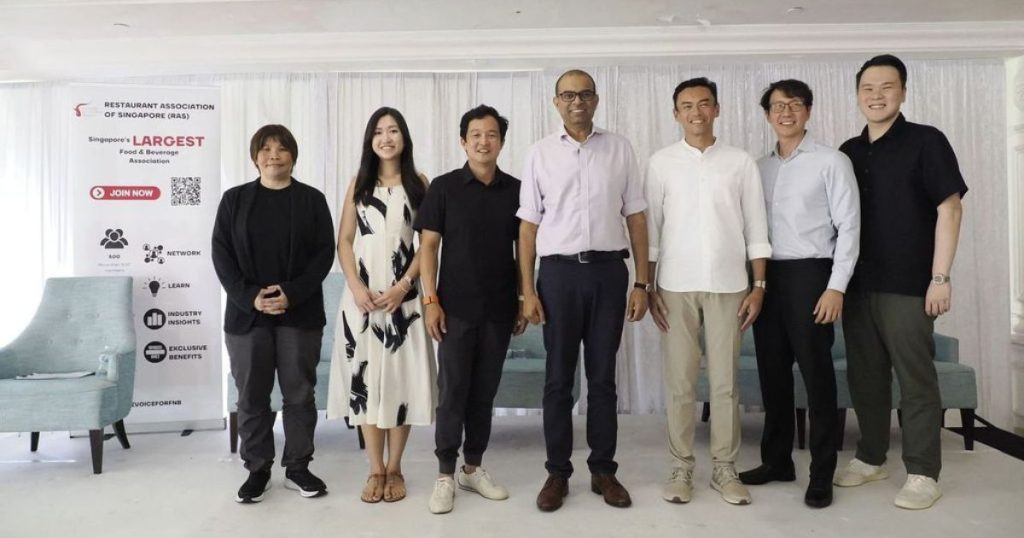Saktiandi Supaat, who heads the Government Parliamentary Committee (GPC) for Finance and Trade and Industry, said that the GPC plans to strengthen Singapore’s economic position through active consultation with stakeholders.
Mr Saktiandi, Member of Parliament for Bishan-Toa Payoh GRC, told Petir that extensive engagement with stakeholders is crucial as Singapore navigates global uncertainties, economic shifts, supply chain disruptions, and geopolitical challenges.
The committee will reach out to listen and engage with diverse stakeholders, to gather insights on improving Singapore’s position. They include small and medium enterprises (SMEs), multinational corporations (MNCs), and professionals such as accountants, auditors, and technology experts.
“We want to learn more from our partners and friends across different sectors, professions, and industries to better understand their concerns and ideas for improving Singapore,” he said. “We want to provide a platform for constructive advocacy, bringing some of these ideas to Parliament, and helping Singaporeans to better prepare for future developments.”
Mr Saktiandi said the committee will collaborate with the government to enhance Singapore’s resilience, like the efforts of the Singapore Economic Resilience Task Force and the various economic review committees.
“[We want to explore] how we can support firms to transform during economic downturns and enhance our economy through sector diversification,” he explained. “In terms of finance, we want to support national outcomes, such as improving wealth distribution, reducing inequalities, and ensuring our fiscal strength leads to better wealth distribution within the country.”
Mr Saktiandi pointed out that while fiscal policies serve to generate revenue, ensuring these resources directly benefit citizens is equally essential.
“Through focus group discussions and meetings with different groups, we hope to propose policy enhancements and recommendations to the government.”
Mr Saktiandi pointed out that GPC members bring diverse backgrounds, experiences, and areas of interest to the table. These varied perspectives, he noted, “add to the strength of the team”.
Saktiandi Supaat highlights three challenges facing Singapore

Mr Saktiandi highlighted three key challenges facing Singapore.
First, Singapore faces intensifying competition from both neighbouring countries and global competitors in securing market share.
“With the rapid advancements in technology and innovation, some countries can easily surpass Singapore in specific sectors,” he explained.
Second, the Trump administration’s tariff framework has disrupted trade flows, potentially affecting existing trade relationships and supply chains.
“We have yet to witness the full extent of the ramifications. In a worst-case scenario, companies might relocate from Singapore to other regions, leading to workforce dislocations, job losses, and related challenges,” he cautioned.
He emphasised that Singapore must remain vigilant about these worst-case scenarios and their potential impact on various stakeholders, including micro and small-medium enterprises, the workforce, and citizens.
Third, the possibility of additional tariffs or measures from the Trump administration, particularly in sectors like pharmaceuticals and semiconductors, could significantly affect Singapore. “There could be a whole lot of uncertainties hitting us,” he said.
In response to these challenges, Mr Saktiandi stressed the importance of seizing opportunities while strengthening Singapore’s resilience and competitiveness.
“We must work together to enhance information from individuals and businesses within our respective sectors to optimise our scarce resources such as labour, capital and land. This effort will create more jobs and better wages for Singaporeans,” he explained.
He expressed his commitment to collaborating with other GPCs, recognising the interconnected nature of national policies across finance, trade, and industry that can impact other GPC domains.
“It is essential for all GPCs to work together – whether in education, manpower, or trade and industry – to ensure that our policies and legislation are in sync, ultimately making Singapore better,” he said.
During this term of government, Mr Saktiandi will speak up on maintaining Singapore’s global competitiveness.
“How can we sustain our competitive edge consistently, year after year? It’s a testament to the work of our ministries and agencies like EDB (Singapore Economic Development Board) and Enterprise SG,” he said.
He hopes that the government “can enhance our policies and legislation and take action faster”, especially in today’s rapidly evolving and uncertain world where swift adaptation is crucial.
He is also concerned about workers getting optimal welfare benefits as Singapore enhances its social and economic resilience.
| Saktiandi Supaat will focus on employment opportunities for young Singaporeans As deputy-chair of the Manpower GPC, Mr Saktiandi will focus on three key areas: expanding job opportunities for young Singaporeans, particularly those from polytechnics and ITEs, enhancing Singaporeans’ retirement adequacy, and assessing technology’s impact on employment. “I will look at opportunities for Singaporean youths going forward and how we can enhance the wages of our workforce, especially the young workers coming into the workforce.” On improving retirement adequacy for Singaporeans, he asked: “Can we leverage our fiscal strength to enhance provide additional support for more vulnerable segments of society as they approach retirement?” |




